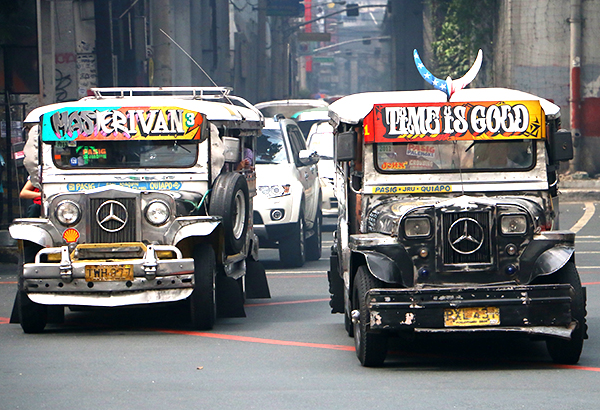
Upgrade to High-Speed Internet for only ₱1499/month!
Enjoy up to 100 Mbps fiber broadband, perfect for browsing, streaming, and gaming.
Visit Suniway.ph to learn
Member of Duterte's lawyers team Harry Roque talks to journalists outside the International Criminal Court (ICC) ahead of the hearing of former Philippines' president Rodrigo Dutertein The Hague on March 14, 2025.
AFP / Nicolas Tucat
MANILA, Philippines — The Department of Justice is preparing to request an Interpol red notice against former human rights lawyer and Duterte spokesperson Harry Roque, who is currently facing trafficking in persons charges in the Philippines.
Justice Assistant Secretary Mico Clavano said the DOJ is still finalizing the documents needed for the request.
“Yet, over and beyond Interpol, and upon consultation with the international law experts in the DOJ, there are many more options to consider. Thus, the DOJ is in the process of identifying the best course of action,” Clavano told reporters on Tuesday, May 20.
Justice Undersecretary Nicholas Ty, in a separate interview with OneNews, said the department aims to file the request next week and hopes Interpol will act swiftly. Ty explained that the request will be coursed through the Philippine Center on Transnational Crime, while the Department of Foreign Affairs will handle official communications.
What it is. An Interpol red notice is a request to law enforcement agencies in Interpol-member countries to locate and arrest a person pending extradition, surrender or similar legal action. It is not, however, an international arrest warrant.
The Philippines has previously utilized Interpol to arrest suspended lawmaker Arnolfo Teves Jr. in Timor-Leste, though the Timor-Leste court ultimately ruled in favor of Teves’ appeal against extradition.
The charges. Roque, the former spokesperson of detained former president Rodrigo Duterte, is facing charges before an Angeles City court filed by the DOJ. The case stems from his alleged involvement in the operations of a Philippine Offshore Gaming Operator (POGO) hub in Porac, Pampanga.
He went into hiding after the House of Representatives' Quad Committee issued an arrest warrant, citing him for contempt and ordering his detention due to his failure to provide documents explaining his sudden accumulation of wealth.
Manhunt and reappearance. After several months of evading authorities, Roque resurfaced on March 14, appearing with Vice President Sara Duterte and Sen. Robin Padilla outside the International Criminal Court (ICC) building in The Hague, Netherlands.
Roque has since said he is applying for asylum in the Netherlands, arguing that his application would ensure his protection under the principle of non-refoulement.
In international law, the principle of non-refoulement prohibits returning individuals to a country where they would face persecution or serious harm, such as torture or ill-treatment. However, Ty said the principle does not apply to Roque, as it is limited to serious non-political crimes.
“That's one of the things that the Philippines will point out when we write our official communication to the Hague on this issue. Because that's one of the things that Secretary Remilia directed us to do, is that upon issuance of the warrant for arrest, we have to put on record that this is a case of prosecution. Prosecution for a non-political crime,” Ty said.

 1 month ago
11
1 month ago
11



